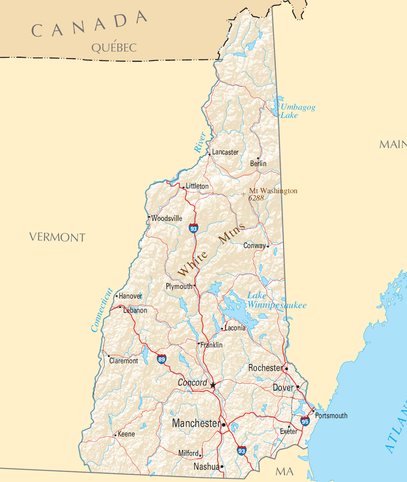By NewsDesk @infectiousdiseasenews
The New Hampshire Department of Health and Human Services (DHHS) have reported two presumptive positive test results for COVID-19, the disease caused by the new 2019 coronavirus.

Both patients are from Grafton County. The first case reported on Monday is an adult male who traveled to Italy. The second case, an adult male, was in close contact with the first person.
DHHS is awaiting confirmation of two presumptive positive test results by the U.S. Centers for Disease Control and Prevention.
The contact investigation for the first person identified as a presumptive positive case of the new coronavirus, COVID-19 was initiated as soon as the person was identified for testing. Through the course of the investigation, DHHS has determined that the first patient, despite having been directed to self-isolate, attended an invitation-only private event on Friday, February 28. DHHS has issued an official order of isolation to the first patient under RSA-141-C:11. DHHS is contacting attendees who had close contact with the person during the event and notifying them to follow the recommended 14-day self-isolation.
Dartmouth-Hitchcock Medical Center (DHMC) has announced that the first person identified as a positive case is an employee. DHMC has identified staff who may have been exposed through close contact with the patient and will monitor those individuals’ self-monitoring or self-isolating. At this time, DHMC is not aware of exposure to any patients in clinical areas.
The U.S. expects to detect more introductions of COVID-19 through travel, as well as more person-to-person spread and community transmission of this virus. The CDC and New Hampshire are conducting aggressive containment efforts, including ongoing use of isolation and quarantine measures to decrease introductions and spread of the virus.
Because COVID-19, and all respiratory illnesses, are most commonly spread through respiratory droplets, residents should take the same precautions as those recommended to prevent the spread of influenza:
- Stay home and avoid public places when sick (i.e. social distancing)
- Cover mouth and nose when coughing and sneezing
- Wash hands frequently
- Avoid being within 6 feet (close contact) of a person who is sick
- Avoid sharing drinks, smoking/vaping devices, or other utensils or objects that may transmit saliva
- Disinfect frequently touched surfaces
- COVID-19: Researchers discover why remdesivir is effective in treating the coronaviruses
- COVID-19 pneumonia: Researchers detail chest CT findings
- Lyme Disease Biobank and a new study
- Seattle area COVID-19 outbreak: Seven additional cases, 2 deaths
- Massachusetts reports first presumptive positive case of COVID-19
- COVID-19: Georgia reports two cases in Fulton County
- Iran reports an additional 800 COVID-19 cases, WHO experts arrive in Tehran
- Ukraine reports 1st COVID-19 case in traveler to Italy

